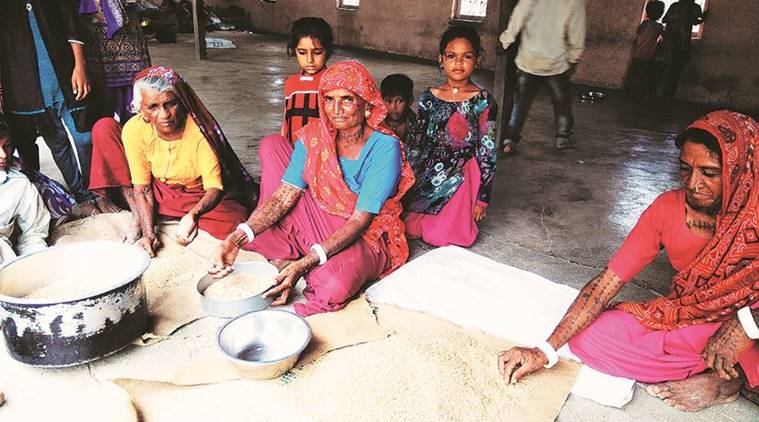
Sixteen-year-old Salman, a fisherman from Jhalesar society of Veraval, woke up to an unusual sight of government and army vehicles approaching his neighbourhood and officials evacuating them on Wednesday.
Follow Cyclone Vayu LIVE UPDATES here
He soon realised that the government has sounded red alert owing to an upcoming severe cyclonic storm, Vayu, which is most likely to hit the Gujarat coast near Veraval Thursday. Government officials, along with personnel from National Disaster Response Force (NDRF), began rounds of negotiation with the fishermen and their families asking them to move to a nearby evacuation shelter, however, they vehemently refused. Around 200 families with over 1,000 residents have been living in the Jhalesar society, almost near the sea, for the past one decade. They claimed that sea storms are part of their work lives and they will survive this one as well.
“I have been going to the sea since I was six and know the damage that a storm can cause. Two years ago, another storm had hit the coastal town and our house was flooded, but we did not vacate it. We have to safeguard our boats, which costs around Rs 3 lakh each, and other belongings,” said Salman.
Salman’s house is built on a high altitude, merely 50 metres away from the seashore. Like Salman’s, there are 50-60 pucca houses, which are expected to bear the maximum brunt when Vayu hits the coastal town.
Another fisherman Yusuf Khan Pateliya said they cannot leave their homes unguarded just because of a storm. “We have not been able to take our boats in the sea for the past 3-4 days due to bad weather and have already suffered losses,” said Pateliya.
By evening, when several rounds of negotiation failed with the fishermen, police and the NDRF started removing the residents of Jhalesar forcefully and shifted them to a nearby government primary school, which has been converted into a shelter for evacuees.
“We tried to hold several rounds of talks with them. We even called two local maulvis to make an appeal. The police personnel even folded their hands before them,” said Inspector L M Saundarva of State Disaster Relief Fund, adding they had arranged for a bus to carry them to the shelter.
Gir Somnath Collector Ajay Prakash said, “Our target was to evacuate more than 18,000 people from 101 villages in the district. We have made around 110 shelters for them and nearly all of them have been shifted. We are also using force to evacuate if talks fail as saving lives is the priority over discomfort caused to a few. We will provide food and other basic amenities to the people in shelters. For Thursday, when the storm hits, we have four units of NDRF and Gujarat Police and one unit of Indian Army on standby.”

While the reason behind not moving to a shelter in the wake of the upcoming natural calamity might seem bizarre, one fisherman indicated the possible reason behind the reluctance.
“The poor (fishermen) believe that if the government can move them out once from their land, they can do it again. This is why, they want to stay back and fight for whatever belongings they have,” the fisherman said on condition of anonymity. He indicated that many of the fishermen may not have documents to prove the ownership of the house they live in.
Meanwhile, as the sun set and high tides increased, the residents of Jhalesar finally budged in and boarded police buses for shelters in nearby schools. However, it was only after the NDRF team and fishermen ensured that all boats had been safely pulled away from the shore.